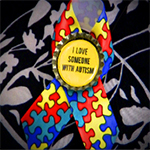People from all walks of life, from policy makers to chronic pain sufferers, have joined in the discussion over the solution to prescription drug addiction. This is not simply an issue of illegal drug use; the outcome has the potential of jeopardizing the quality of life for the thousands of chronic pain sufferers.
With about 7,000 homeless youth in Los Angeles, shelters are struggling to keep up with the overwhelming number of young people without a permanent home. But shelters and experts say the number of homeless youth in this city is almost impossible to calculate and could be higher than we imagine, since most homeless youth hide in plain sight, and most hide out in Hollywood.
Areva Martin founded the Special Needs Network when her son was also diagnosed with autism and because, “there was no parent group in South L.A. that focused on advocating for their children’s rights”. Martin also says parents in South L.A. are at a disadvantage when it comes to resources and education for their children who have autism.
April 23rd, 8:49pm, Julian Otis notices the red blinking light on the dial pad from the corner of his eye. Stopping homework traffic, he pushes a geometry textbook to the right side of his desk. After two alarming rings, Otis picks up the phone and positions his hands over the keyboard.
“Hello, this is Tobias at Teen Line,” he answers.
72 minutes until the end of his shift. Another caller. Another cry for help.
Teen line is a teen-to-teen help line. High school volunteers are trained to help teens through calls, emails and texts with various problems such as drug abuse, eating disorders, sexuality, self injury, suicide, sexual violence, bullying and cyber bullying. Otis’ caller was seeking advice about the last two. Thirteen months ago, her then boyfriend allegedly raped the fifteen-year-old.
The Center for Disease Control and Prevention and The National Institute of Justice recently found that about 42% of female rape victims were first raped before age 18 and nearly 30% between the ages of 11-17. Half of the perpetrators of the female victims are intimate partners.
According to Harriett Kerr, Director of Prevention and Education at Santa Monica/UCLA’s Rape Treatment Center, 3-4 victims are seen in their 24-hour acute medical forensic center per day. Although most victims delay to disclosing any information about their case.
“It’s not at all uncommon for people to call us and say “I was sexually assaulted 2 years ago, and never got help for it,” Kerr said. “Often something in their life has happened that’s reminded them of the assault whether it’s renewed contact with the assailant or a news story which was triggering for them,” she continued.
Memories can be hazy, almost always haunting and difficult to discuss. But when surrounded by open ears and compassion, survivors can be encouraged to work through and pass their traumatic events. A fellow survivor sparked USC’s Francesca Bessey to share her story.
One year ago Bessey made three decisions. She chose to leave a party with a young man. She chose to spend some intimate time with him following the festivities. Bessey did not, however, choose to wake up in the act of being sexually assaulted.
Ashamed and in disbelief of what she woke up to, the sophomore tried to burry the memories, but two things seemed impossible to forget.
“One is pain and the other is this weird almost out of body understanding of feeling helpless in the situation and thinking like ‘I don’t think I can stop this and I think I’m going to have to sit here and take it and that was really upsetting,” Bessey uncomfortably reminisced.
The incident challenged everything Bessey grew up believing in and fighting for, particularly women’s rights.
“Even as a 5 and 6 year old child I used to resent the fact that my brothers and/or boys in the neighborhood would treat me differently because I was female,” she shared.
Bessey, who describes herself as an activist and Feminist, has always believed in the power of her voice. Her parents also encouraged her to speak up for herself. Her dad, a national level wrestler, taught her the importance of self- defense. However, that night Bessey was defenseless and voiceless. For that, she blamed herself.
“I was suffering under this complete shame that I put myself in this situation where I couldn’t use that ability, I wasn’t able to defend myself,” Bessy explained. “There was a lot of self blame going on and so I thought this is just embarrassing so I’m not going to,” she continued.
A few months ago, that changed after two women shared stories about being sexually assaulted at a campus club meeting.
“It really got me to sort of reengage with memories I decided to just put away,” Bessey said.
Soon after, while Bessey was hashing out the painful details in her mind, USC’s Student Coalition Against Rape (SCAR) was developed by a mutual friend, Tucker Reed.
Reed’s story received a lot of media attention. When NeonTommy, USC’s Digital News website discussed covering Reed and the attention surrounding her story, Bessey (Deputy Opinion Editor of the website), considering her relation to the subject and the topic of the story volunteered. When she sat down to write, however, she found it unbearable to remove her experience from the story.
“I realized that it was really difficult for me to speak openly about my relationship with the issue – I was personally affected by it – I literally couldn’t write without writing stuff in relation to myself.”
And so, Bessey replaced ‘she’ with ‘I’ for the whole world to see.
“Even if I couldn’t get personal justice, I could use what happened to me – which was a terrible experience – and turn it into something that could be a positive experience for other people who have experienced the same thing,” Bessey thought.
The story was published one week ago, and currently stands as the most read piece on the university’s website with over 130 comments. And while Bessey received positive feedback, several of the comments elude a seemingly inescapable “blame the victim” mentality. One unverified student wrote:
Bottom line, don’t want to run the risk of being raped, simply don’t go out to frat parties. There are plenty of ways a college girl can have unadulterated fun. Guys (especially college guys) are biologically programmed to try to screw every girl they can, it’s nature. Don’t hate the players, hate the game. Stop being the victim and don’t jus fall into that “girl power” cliché. Blaming USC for not doing anything about frat parties is like trying to blame a car manufacture for the fact that you decided drink and get in a car accident.”
Kerr says, sometimes the backlash is worse than the assault itself. This was the case for Otis’s caller.
She didn’t wait to explain what happened to her. But she also didn’t want her ex-boyfriend to be punished, so she cautiously proceeded to tell her parents what happened.
“She told her parents right after it happened and they didn’t call the police. No legal action was taken whatsoever and she really hated the idea of putting him in jail, Otis said.”
Their lackadaisical response of – “I’m sorry that happened to you” – according to Otis calmed her fear and the incident was never discussed again, at least not within the family. Internally coping, she and her ex boyfriend continued to attend the same school, seeing each other sporadically in the hallway. The brief interactions were manageable, until he proposed to a fellow student.
“The reason why she had called on this specific occasion was because she was getting bullied by someone at school. The bully was the rapist’s fiancé who went to her high school, Otis explained.”
Aware of the claimed assault, the fiancé was more overwhelmed with hatred (instead of empathy) for the girl who came before her. The caller did her best to silently ease the tension but as she told Otis, she reached her breaking point.
“The girl was constantly just insulting her and saying things about her behind her back, constantly. And she was doing nothing. She never pursued her, she never said anything back,” he said. “She tried to keep her head down as much as she could because she didn’t want to make anything more of it than what it already was,” Otis continued.
One in four kids in the U.S are bullied on a regular basis. Sixth through tenth graders are the most likely to be involved in activities related to bullying according to a recent SAFE survey.
According to Melissa Sherman, Founder and Executive Director of Beyond Bullies, youth bully for two reasons, power and popularity. Bullies are looking for a rise, a reaction, and so she advises her teens not to give them one.
“If someone is making fun of you because of your height, instead of taking it in and getting upset about it, say something like “Yep, I guess Danny DeVito and I have something in common,” Sherman suggested. “Smile, don’t react, but neutralize it,” she continued.
Sometimes shaking it off with a laugh isn’t enough. The purposeful hurt and scare achieved through bullying often have long-term effects. A punch, racist slur or rumor can be hard to forget, and impede upon self-confidence at a very impressionable stage. Now, the improper use of social media, helped bullying reach another level.
Today’s most common form of harassment, cyberbullying gained its popularity through anonymity. Teens can say mean things online to hurt, embarrass or threaten their peers without ever having to see them. As technology has becomes more advanced, anonymity is further guarded and the levels of hurt more unbearable.
Pattie Fitzgerald, author and founder of Safely Ever After, finds high speed combined with a lack of consideration to be a major problem with the use of social media.
“One of the biggest concerns with the cyberbullying, the sexting [sending sexually explicit messages and/or photographs between mobile phones], and all of the social media is that it is instantaneous. Kids don’t have that filter in their brain that says “slow down,” so what happens is that things go out online or in texts very quickly,” she explained.
The other issue is the lack of privacy.
“There’s this false sense of security that things are private when they’re not and that things can be deleted when they can’t. Once it’s online, it’s in cyber space, there’s a digital footprint that is forever out there,” Fitzgerald said.
When rape, a power of crime and dominance, is combined with bullying and/or cyber bullying, both motivated by a quest for power, victims are often overwhelmed with embarrassment – feeling helpless, hopeless and worthless – with very little desire to continue living.
In California, fifteen-year-old Audrie Pott drank too much at a party and passed out. Several young men, then sexually assaulted her according to her family, and took photos that were then circulated in her high school. Soon after, a humiliated Pott committed suicide.
A recent study found that 12.4% of sexual assaults committed against 13- to 17-year-old teens were gang rapes.
Multiple male peers, according to her family, sexually assaulted Canadian teenager Rehtaeh Parsons, then 15, and photographs were also publically shared online. No legal action was taken by authorities, who stated there was “insufficient evidence” to file charges. Bullied for over a year, Parsons was hospitalized after she tried to hang herself. Three days later, the seventeen-year-old was taken off life support.
Approximately 1 in 6 high school students have seriously considered suicide – according to the Center for Disease Control and Prevention’s survey on youth risky behavior - and 1 in 12 has attempted it.
The survey found that 20% of the high-schoolers said they were bullied while at school. Sixteen percent said they were cyberbullied.
Sharing platforms like Twitter and Snap Chat are literally placed at their fingertips, risky behavior takes on a different meaning. The regard for privacy is lost within teen culture.
Kerr says the sharing and slander which is said to be involved in the Parsons events, is becoming more common.
“We certainly have had some cases where those sorts of things have happened whether it’s after the fact of the report and the person is now being harassed in social media and people criticizing them for coming forward or saying slanderous things about them online or on social media,” she explained. “Or we’ve had situations where elements of the assault were photographed and those photo are disseminated in the community. It will probably continue to increase as just as social media is on the increase now,” Kerr continued.
Social media shares degrading pictures and how our society views sexual crimes.
“One of the issues with social media is that it reveals how greatly our culture misunderstands sexual assault,” said Kerr. Fitzgerald agrees, claiming that the word rape has lost its significance.
“The word rape is now in schools tossed around very casually. You raped your car, you raped your dorm room, meaning you made a big mess of something around your car or your dorm room,” said Fitzgerald. “All of a sudden now rape has become this desensitized word and kids don’t know what it actually is,” she continued.
Simultaneously, the “blame the victim” approach to sexual assault cases continues.
“This is 2013 and there is still a “blame the victim” mentality,” Fitzgerald said with frustration. “Even when a girl makes a mistake, puts herself in an environment that maybe she shouldn’t have, that doesn’t give someone else permission to take advantage of that,” she continued.
Sharon Shelton, Senior Director Empowerment Services at The YWCA of Greater Los Angeles, says progress can’t be made if that mentality continues to exist.
“We have to be very clear that the blame is with the perpetrator and the blame is never with the victim or the survivor,” she declared.
Occidental College’s Lisa Wade says blaming the perpetrator is a must, even when alcohol is involved.
“A lot of people think, “well if he’s drunk and she’s drunk then it’s nobody’s fault.” And why is it that he gets busted and she doesn’t? Remember that being drunk does not excuse a crime. If you’re drunk and you break into somebody’s house and you rob them, then you are still responsible for that crime. If you’re drunk and you murder someone you’re still responsible for that murder,” she said. “If you’re drunk and you get in a car and you drive drunk, even a quintessential drunken crime, you’re still responsible for doing that. So what happens in those discussions about “well they were drunk so it doesn’t matter” is people forget that it’s a crime. If you’re drunk and you do a crime it’s a crime. And so they see it sex and not a crime. But sexual assault is a crime,” she continued.
Nevertheless, victims still feel at fault. Sometimes, when those feelings are shared, it’s too late.
Audrie Pott publically shared the blame she was burdened with before taking her life. During a press conference, stepmother Lisa Pott, read messages the family found on the teen’s Facebook after her suicide. Audrie was quoted as writing:
“I can’t do anything to fix it.”
“I just want this to go away.”
“The whole school knows.”
“I have a reputation I can never get rid of.”
“The boys can die in a hole for all I care.”
“They knew how bad I was.”
“I don’t want to remember.”
“I have a reputation for a night I don’t even remember.”







